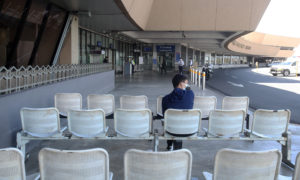A national farmers group has called on the Department of Agriculture to control the country’s rice importation to encourage local farmers to boost production.
The Federation of Free Farmers (FFF) urged Agriculture Secretary William Dar to “carefully calibrate the entry of imports” to avoid a repeat of the supply glut and the resulting drastic decline in palay prices last year which followed the enactment of the rice tariffication law.
With the country now heavily relying on local production of the staple, palay prices have finally started picking up, ending a steady downtrend that started in January last year.
The agency has allocated P8.5 billion to further improve the efficiency of local rice farming, with the ultimate goal of elevating the country’s rice self-sufficiency in rice.
“Secretary Dar just recently announced that import permits have already been issued for 1.8 million metric tons (MT) of rice, and that the DA is now interceding with exporting countries like Vietnam to honor their supply contracts for these imports … If all these imports come in, we would end up with a surplus of over a million tons in 2020. This glut will inevitably lead to a fall in palay prices and end up penalizing the very rice farmers that the DA wanted to support,” FFF national manager Raul Montemayor said.
“The 2.1 million MT of rice imports are already more than enough to cover the domestic shortfall in production, even without having to spend P8.5 billion for a supplemental program,” he added.
Currently, the Philippines’ rice self-sufficiency ratio is at 83 percent. The DA intends to increase the level to 93 percent this year, and cut the country’s shortfall to 7 percent of local demand or to 1 million MT.
The volume of rice imports that would enter the country, however, is expected to exceed a million tons.
The FFF further advised DA to review the cost-efficiency of its latest intervention under the P8.5-billion rice resiliency program. INQ


